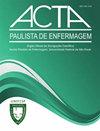获得食物和食物质量:对无家可归者的看法
IF 1
4区 医学
Q3 NURSING
引用次数: 0
摘要
目的了解街头人群对食物获取和食物质量的认知。方法本定性描述性研究在贝洛奥里藏特中南部地区无家可归者参考中心进行。采用半结构化脚本对18名参与者进行访谈。数据收集时间为2020年12月至2021年1月。巴尔丁提出的对材料的主题分析,使详细阐述三个经验范畴成为可能。结果调查对象为男性,平均年龄43岁,平均流浪时间44.6个月。获得食物的途径包括捐赠、在政府机构用餐以及在有收入的情况下获得食物。据报告,在食物的数量和质量、周末膳食的获取、面对饥饿的恐惧和痛苦、缺乏食物、社会耻辱等方面存在困难,这些都因COVID-19而加剧。由于在这种社会不平等的情况下,获得食物的机会得不到保障,因此实施社会保护的公共政策对于保障基本权利是必要的。本文章由计算机程序翻译,如有差异,请以英文原文为准。
Access to food and food quality: perception of the homeless population
Objective To understand the perception of access to food and food quality for the street population. Methods This qualitative descriptive study was performed in a Reference Center for the Homeless Population in the south-central region of Belo Horizonte (MG). A semi-structured script was used to conduct interviews with 18 participants. Data collection occurred between December 2020 and January 2021. The thematic analysis of the material, as proposed by Bardin, made it possible to elaborate three empirical categories. Results The public interviewed was male, with a mean age of 43 years, and a mean time on the streets of 44.6 months. Access to food came from donations, meals at government institutions, and acquisition when income was available. Difficulties were reported regarding the quantity and quality of food, acquisition of meals on weekends, feelings of fear and anguish in the face of hunger, lack of food, and social stigma, which were aggravated by COVID-19. Conclusion As in this scenario of social inequalities the access to food is not guaranteed, implementing public policies of social protection is necessary to guarantee basic rights.
求助全文
通过发布文献求助,成功后即可免费获取论文全文。
去求助
来源期刊

Acta Paulista De Enfermagem
NURSING-
CiteScore
1.40
自引率
0.00%
发文量
92
审稿时长
4 weeks
期刊介绍:
Acta Paulista de Enfermagem – (Acta Paul Enferm.), ISSN 1982-0194, is a [bilingual] technical-scientific electronic publication of the Escola Paulista de Enfermagem – EPE, Universidade Federal de São Paulo – UNIFESP.
Our mission: To disseminate the scientific knowledge generated within the rigor of research and ethics methodology.
Our objective: To publish results of original research for advancement of practices of clinical, surgical, and management nursing, as well as education, research, and information and communication technology.
 求助内容:
求助内容: 应助结果提醒方式:
应助结果提醒方式:


